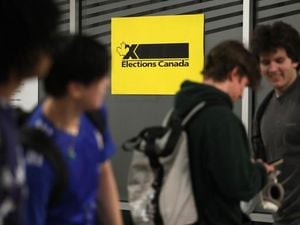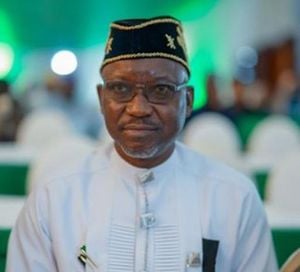Starbucks, a titan in the coffee industry, now finds itself at the crossroads of corporate tension and strategic decision-making as activist investor Elliott Management engages in negotiations with the coffee giant's board. These discussions have come to light as Elliott has reportedly accumulated a stake potentially worth up to $2 billion, subsequently proposing governance enhancements that would allow the current CEO Laxman Narasimhan to retain his role despite mounting investor pressure.
Chaotic markets in recent times reflect wider economic uncertainties. Many retail giants, including Starbucks, have seen their stock prices fluctuate dramatically. In fact, Starbucks has recently faced a grim reality, experiencing a sharp 18% decline in its stock value in 2024. This downturn starkly contrasts with the broader market trend, as the S&P 500 has climbed by approximately 16% during the same period. This misalignment is a stark indicator of challenges faced by the company, especially as it grapples with falling sales in both the United States and China, contributing to a dismal performance across multiple quarters.
Amidst these financial woes, Howard Schultz, Starbucks' previous CEO and a pivotal figure whose influence persists even after departing the board, is now casting a long shadow over negotiations. Although Schultz officially stepped back in September 2023, retaining the title of chairman emeritus, he remains an influential stakeholder. Sources indicate that Schultz has communicated his opposition to Elliott's recent proposals to certain board members. His enduring relationship with current board chair, Mellody Hobson, adds another layer of complexity to the existing dynamics.
Elliott Management presented its offer to Starbucks about a month ago without receiving any formal response from the board. While the exact details of the proposal remain privately discussed, insiders note that it generally encompasses suggestions for enhancing corporate governance and possibly expanding the board. However, a significant aspect of this settlement is that it allows Narasimhan to continue leading the company, which has sparked debate amongst stakeholders.
As Schultz has voiced concerns over the strategic direction taken under Narasimhan, calling for renewed focus and discipline, his criticisms amplify the pressure on the current CEO. In a recent post on LinkedIn, Schulz highlighted the importance of accountability for underperformance, emphasizing, "At any company that misses badly, there must be contrition and renewed focus and discipline on the core."
Under Narasimhan's leadership since March 2023, Starbucks has prioritized initiatives like discounted offerings and new product launches, which he believes are pivotal to revitalizing the brand. Nevertheless, Schultz's public criticisms highlight a palpable disconnect between past and present leadership styles. As the founder of Starbucks, Schultz has expressed disappointment regarding the company’s performance and direction and remains wary of the efficacy of measures proposed by Narasimhan.
The board's failure to comment publicly is notable, especially in light of Shiulesh's oppressive presence. Board meetings have reportedly included discussions of Elliott's proposals, yet significant decisions remain siloed and shielded from public scrutiny. With Schultz's right to attend board meetings, negotiations could veer towards complications as his implied dissent holds potential implications for the future of the brand.
Elliott Management is recognized for its aggressive stance on corporate governance, often leading to contested board seats and even changes in management when companies fall short of performance metrics. The activist investment firm is actively pursuing changes at other firms as well, notably targeting Southwest Airlines in a campaign that, if successful, could see leadership changes implemented there too.
Starbucks is already in a fragile state, as its sales slump continues unabated, especially post-COVID where consumer habits have shifted. The coffee company struggles particularly in China, where growth has not rebounded post-pandemic as anticipated.
The fluid dynamics of board governance at Starbucks mirror the broader uncertainties in corporate America today, drawing attention to the complexity of maintaining shareholder value in turbulent times. Investor sentiment remains skittish, and the outcomes of Elliott's active engagement could well bear significant repercussions for short-term leadership dynamics and long-term brand recovery efforts.
As discussions continue, onlookers are left pondering whether the internally contentious setting at Starbucks will foster necessary changes or exacerbate existing fissures. Shall the proposed governance changes take shape, and will the Starbucks leadership embrace a new path towards revitalization amid competing visions for its future?
The resolution to this saga is still unfolding, but one truth remains: activist shareholders often hold significant power in reshaping the strategic landscape of public companies. In such uncertain times for both Starbucks and its leadership, clarity amid the fog of conflicting priorities will be crucial as the company attempts to navigate through its present turmoil and strive towards a viable future.



